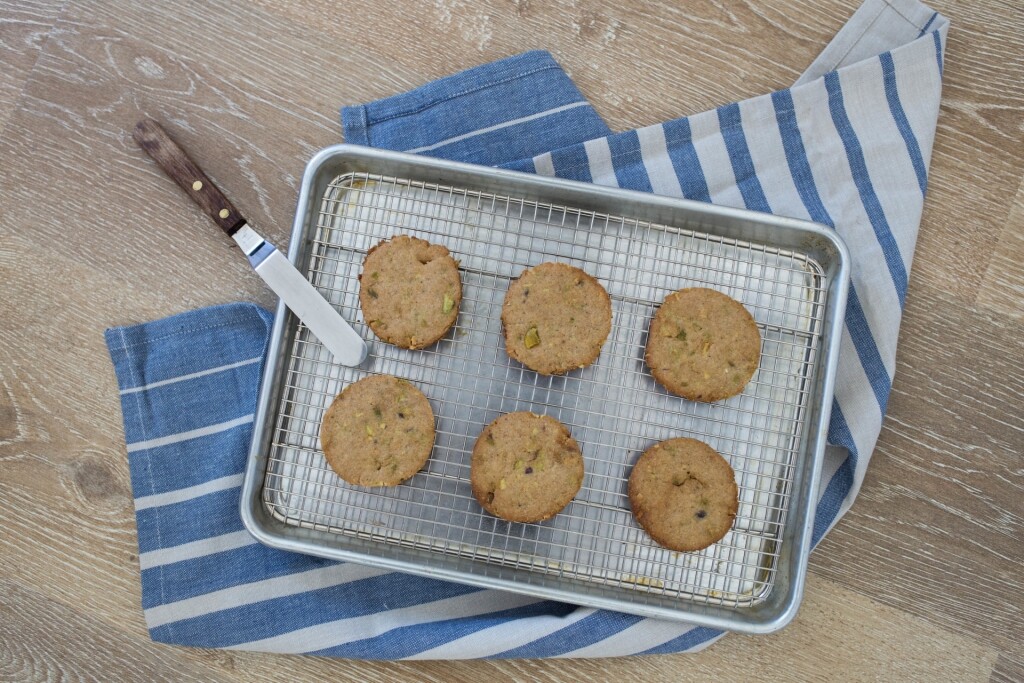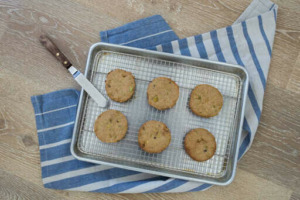Sucrose, corn syrup, molasses, evaporated cane juice…what do all of these words have in common? Sugar, sugar, and more sugar.
Did you know that there are more than 50 different names for sugar used in the food industry today? Talk about confusing!
I know this may sound obvious, but l want to emphasize it because it’s important…
Having diabetes does NOT mean that you can never have sweets again!
However, aside from artificial sweeteners (which I don’t recommend, but more on that in a minute), all forms of sugar can contribute to a rise in blood sugar.
Paying attention to portion sizes and trying to limit the amount of sugar consumed is always important, no matter what type of sugar you are using.

Here are the fast facts:
- One teaspoon of sugar is equal to 4 grams of sugar.
- To put that into practice: If you see a food label contains 12 grams of sugar, that’s already 3 teaspoons of sugar.
- According to the American Heart Association, women should have no more than 6 teaspoons (25 grams) of added sugar per day and men should have no more than 9 teaspoons (36 grams) of added sugar per day.
So, what are the healthiest sugars for those desiring some sweetness, but not wanting to wreck havoc on their blood sugar levels?
There are some natural sweeteners that can help add some sweetness to your life while also providing other health benefits, a win-win situation when it comes to sugar!
Here are my favorite sweeteners:
- Honey. More than just a sweetener, raw honey is also known to have antioxidant and antibacterial properties, making it superior to table sugar.
- Maple Syrup. Maple syrup contains more health-promoting minerals than table sugar including zinc, which is beneficial for the immune system.
- Coconut Sugar. Compared to table sugar, coconut sugar is lower in fructose, the type of sugar linked to a number of health ailments when consumed in excess. It also has trace amounts of minerals and other nutrients, and works well in baking.
- Stevia. Stevia is not an artificial sweetener, but rather a zero-calorie, natural, herbal sweetener that comes from the leaves of the Stevia plant. It will not contribute to a rise in blood sugar levels. Just be sure to choose 100% pure organic Stevia.
- Fresh or frozen fruit. If you’re going to sweeten your food, this will have the most health benefits since fruit not only contains vitamins and minerals, but also fiber.
You may notice that I didn’t mention artificial sweeteners such as Splenda (Sucralose), Equal (Aspartame), or sugar alcohols like sorbitol.
This is because these sugar substitutes have been shown to contribute to a number of negative health outcomes (1), including changes to the gut bacteria (2), digestive distress, and even an increased craving for sweets…NOT what you are looking for!
Bottom line?
Natural sugars are best, but at the end of the day, it’s all about the amount you are eating. By making gradual changes to your eating habits to cut back on foods with added sugar, you will reduce the craving for sugar in the first place…the ultimate goal. 🙂
Thoughts? Feel free to comment below and let me know. I love to hear from you!
And if you are looking for more info on reducing the added sugar in your diet, click here for my free 7 day diabetes meal plan – one week of meals, recipes, and a grocery list with no added sugar.
References:



Leave a Reply